Customer Portal in a global manufacturing company
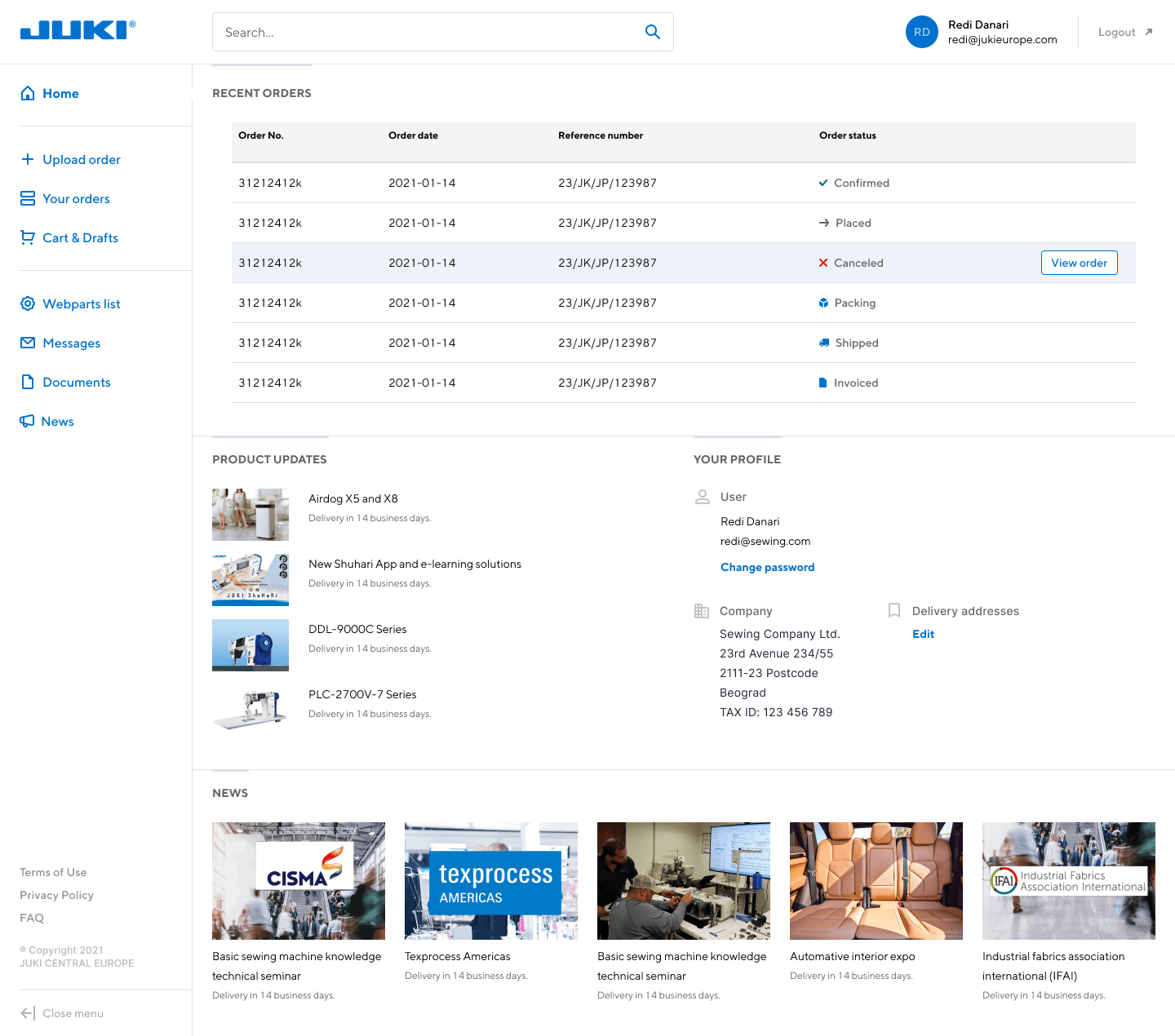
Overview
During the project, we split the process into three parts:
- Step 1: Defining the scope and analysis of the current process which is to be digitized
- Step 2: UX/UI design
- Step 3: Software development and implementation
About the client
JUKI has grown steadily as a supplier of high-end products and services to industries worldwide since its founding in 1938. Since that time, the company has expanded its competencies from casting metal parts to become one of the world’s leading manufacturing equipment producers.
Their main products are sewing machines for industrial purposes and home use. Service and spare parts for those machines are also an equally large part of the product portfolio.
About the project
Juki's Customer Portal (CP) is an internal tool dedicated to after-sales service and an ordering platform for customers. Behind the logic of the creation of CP is the desire to optimize the operational time devoted to placing orders, and to improve the flow of information on a global stock level.
At the idea phase, Customer Portal was a 3-level order management tool: for customers, sales agents and admins. In the end, we delivered a comprehensive tool for almost all possible user-paths through the portal and by order placing procedure.
Data management tools always require compromises, especially when it comes to processing big data sets. In this particular case, we had the opportunity to implement best industry practices. Those compromises came when we had to merge necessary data on different levels, which gave us the possibility to build proper and scalable information architecture.
Juki's Customer Portal is an internal tool dedicated to after-sales service, and an ordering platform for customers. Behind the logic of the creation of CP is the desire to optimize the operational time devoted to placing orders and improving the flow of information on a global stock level.
The main reason for the project was to allow customers to place orders more conveniently, automatically. The CP system is the answer to their needs in reducing the time of information transfer and the possibility of successful completion of inquiries.
The Challenge
The modular product consists of two pillar parts, i.e. the customer panel and the seller's panel. In the customer panel, it is possible to place orders but also find information on the delivery time, order fulfillment stage, purchase history and commercial conditions.
In the seller's part, Customer Portal allows for the acquisition of a wide range of information, thanks to which a JUKI employee is able to even automatically carry out the entire purchasing process, coordinating only the implementation status.
Before implementing the new Customer Portal (CP), Juki's customers had to place orders manually and wait for responses from different subsidiaries worldwide. Sometimes it took a few days to receive a response, which impacted the overall impression of the order-placing process.
We created a tool that allows for processing orders almost immediately. The tool includes a fast and reliable replacement system that enables customers to make proper decisions based on the availability of products in real-time. Also, sales agents got an easier way to check prices, the status of orders, and stock levels.
integrated data sources
items ready to order
- A comprehensive overview of the project based on interviews, research, and analysis,
- Detailed definition of the technical scope of the project, including all deliverables,
- Scalable and innovative front-end part developed using the most common technologies,
- Fast and secure back-end based on reliable and proven CMS.
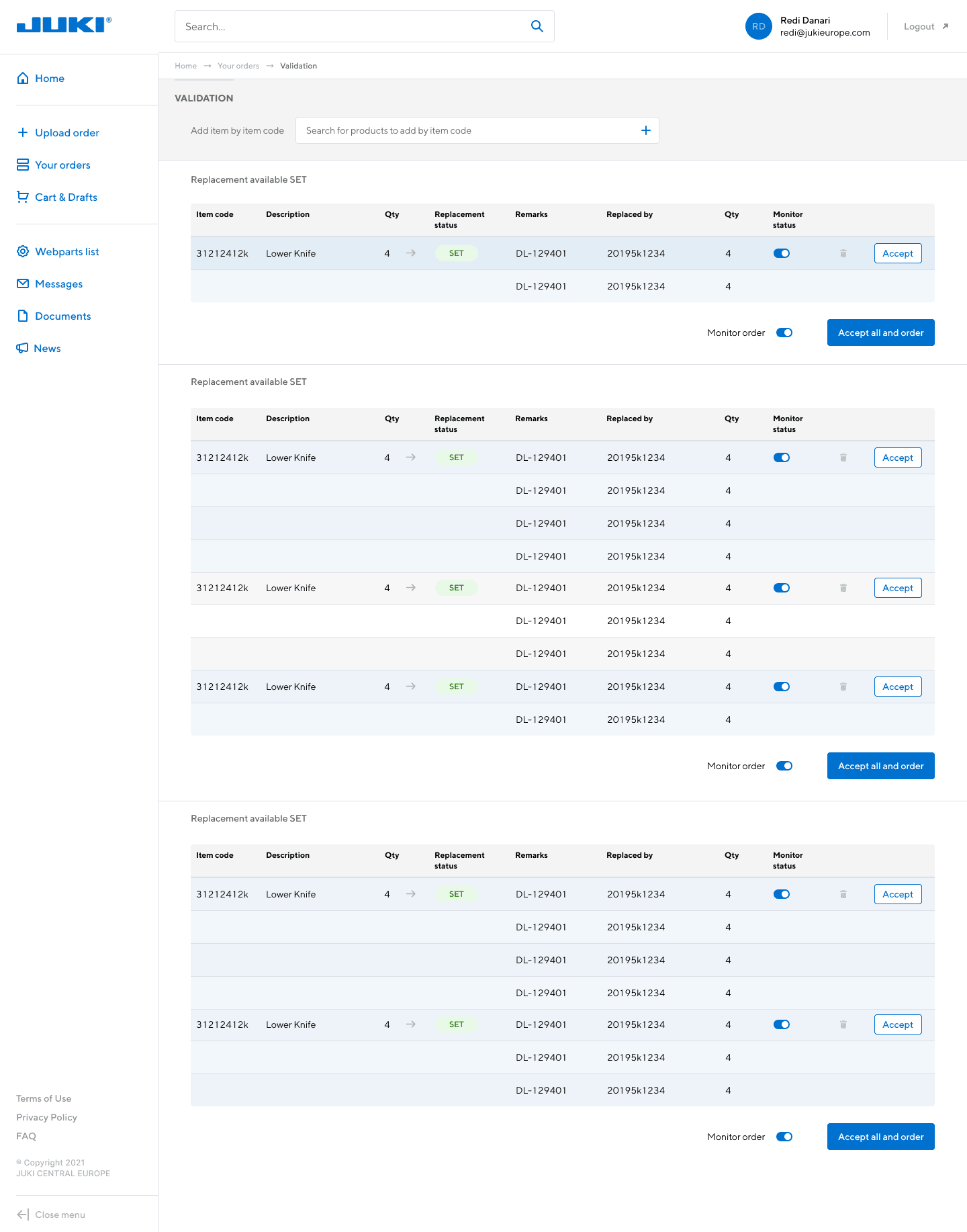
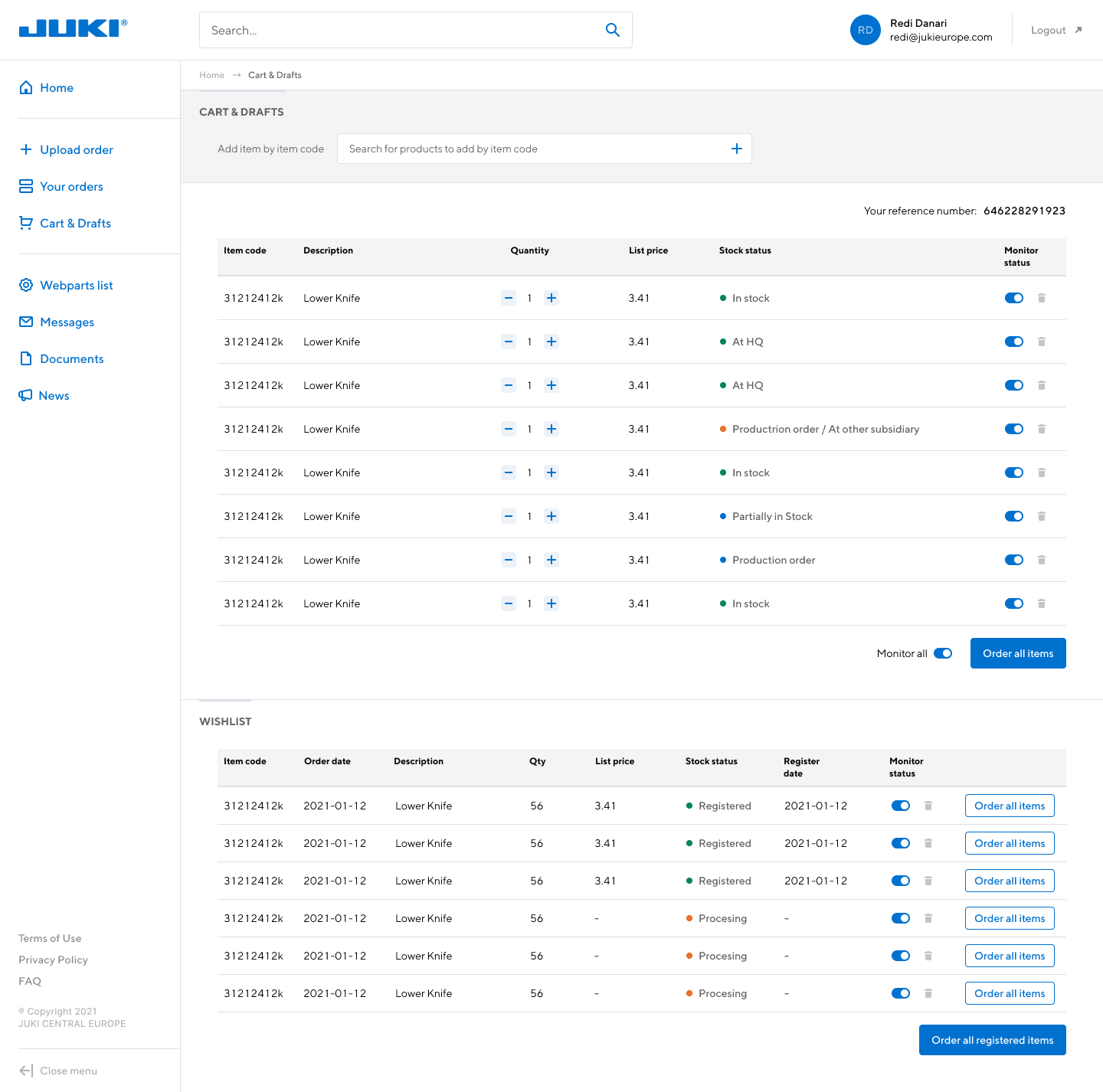
Our work
The reason for implementing the above solution is the definitive need for digital transformation and minimizing the technical debt that could progress along with the development of the company's product base.
The scale is essential. While JUKI operates in a less mainstream niche, they have created several hundred thousand product records in their database, which forces them to take thoughtful actions in the technological context and its further development.
The customer
The customer module was the most crucial part due to the number of potential users. We split the most often used functionalities into two areas: order management and collaboration.
As you can imagine - the order management part was our primary focus. The user starts their journey at the dashboard with easy access to main features, like Recent Orders, Products & News, and Profile Settings.
We added the possibility for the users to upload their orders in an XLSX file. The system automatically informs them about the availability of the products included in the file or possible replacements.
In the case of discontinued products, users can save products to a wishlist, where administrators can analyze potential interest in older/canceled items. Users can receive regular updates on products, news, and (what's important) instant updates on the order status.
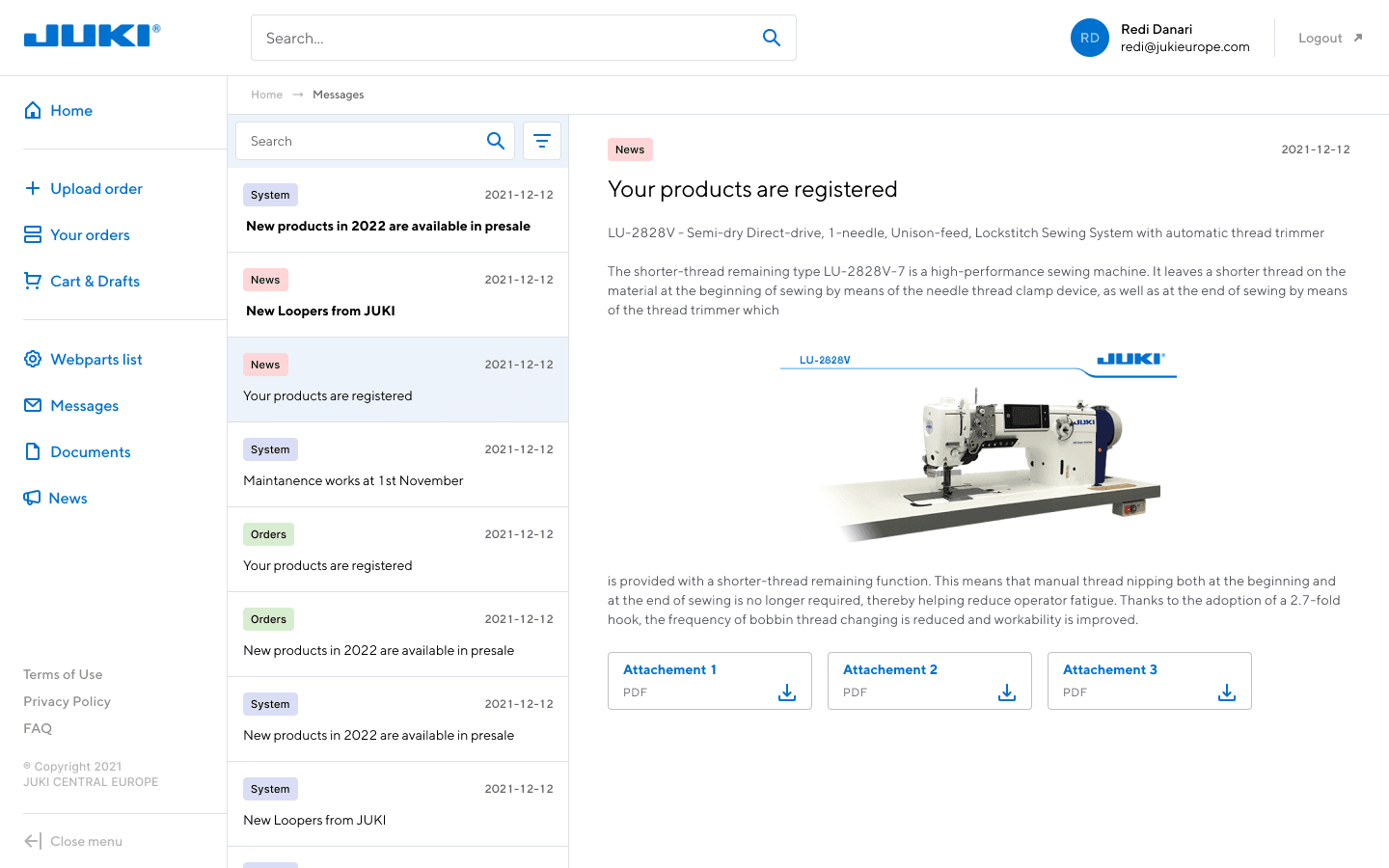
Sales Agent
Sales agents are the second biggest group of users. These are Juki employees who are responsible for processing orders. The version of the Customer Portal dedicated to them is slightly smaller. Agents can follow urgent orders using the "Monitor Status" mark. It allows them to be more efficient and focus on the most critical orders and users' needs.
With new CP, agents can monitor the statuses of orders and manually validate them without checking the situation on subsidiaries and global stocks.
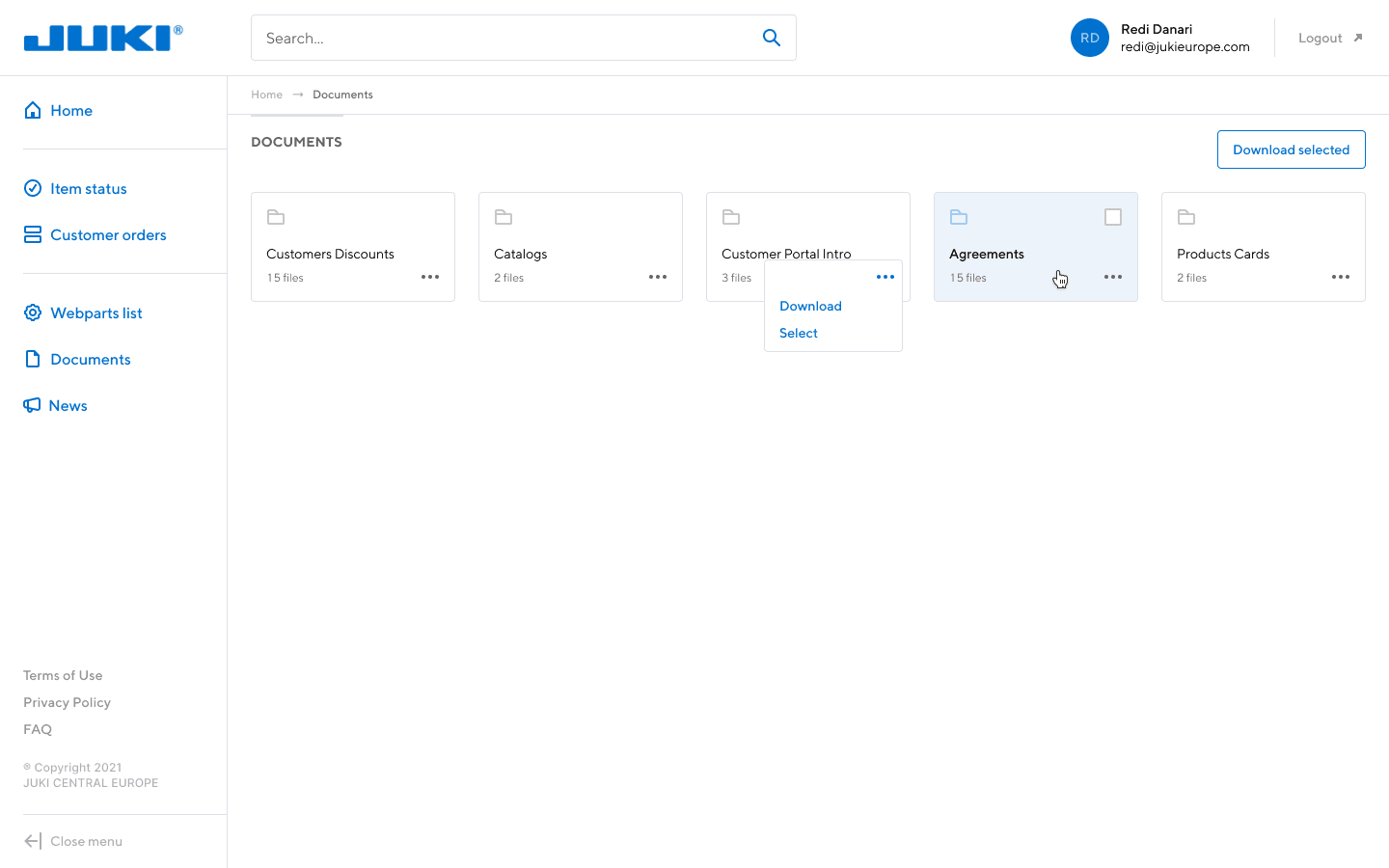
Admin
The admin site is for managing all the data in the portal. Admins can manually validate orders, send messages to others and create news articles. The most important part of the admin role is to manage customers and companies that can join Customer Portal and give access to user profiles.
The most significant improvement we provided is the ability to look at system logs to provide insight into the level of interest in products and time spent on orders. Used properly, it can greatly impact overall customer experience and satisfaction due to potential improvements of the process in the future and make complicated processes as easy and user-friendly as possible.
One of the last features worth mentioning is automated wishlist processing. Once a day, products saved to users’ wishlists are sent to a proper department by the admin module so that they can be analyzed and added to an ERP system.
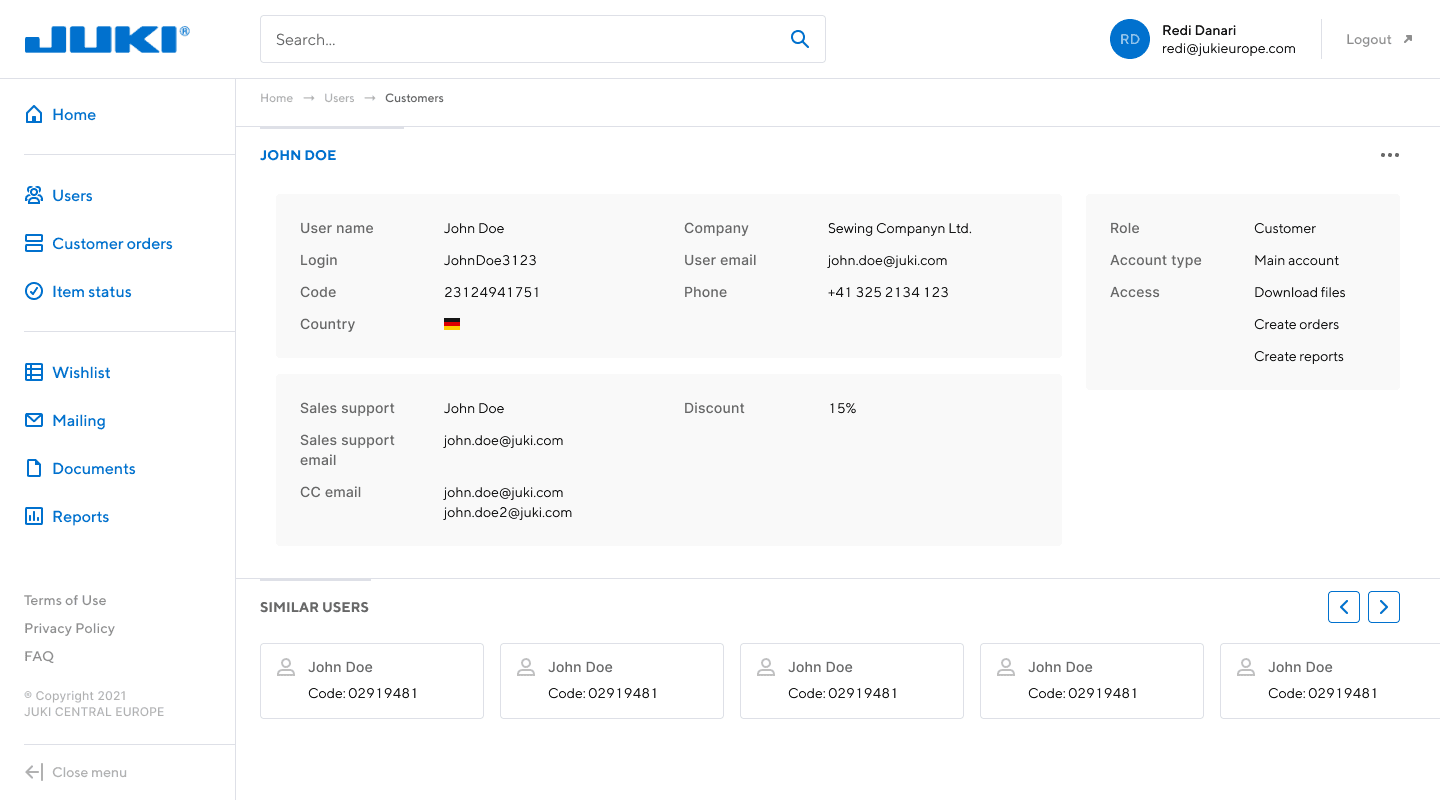
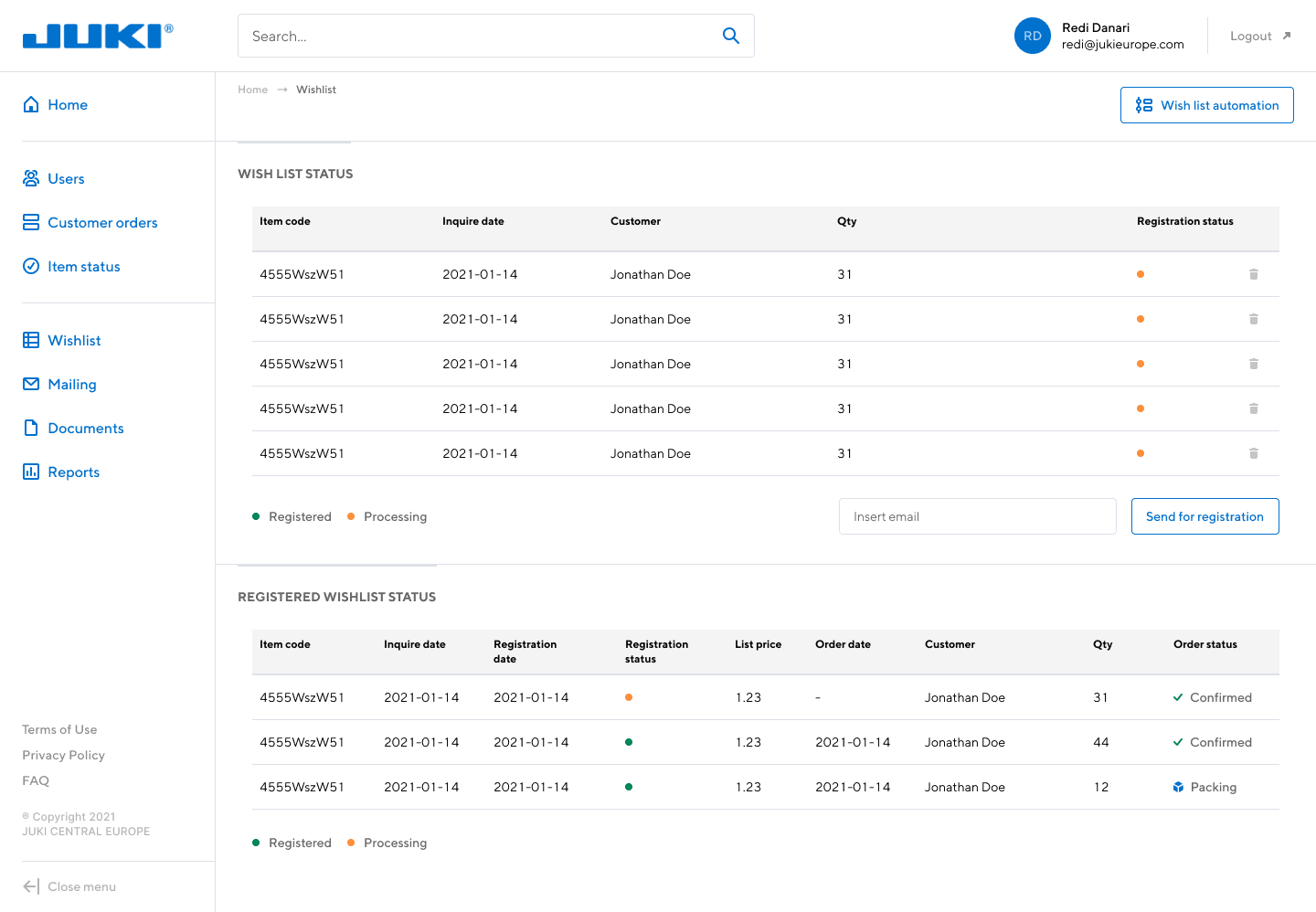
We delivered:
- A comprehensive overview of the project based on interviews, research, and analysis,
- Detailed definition of the technical scope of the project, including all deliverables,
- Scalable and innovative front-end part developed using the most common technologies,
- Fast and secure back-end based on reliable and proven CMS.
integrated data sources
items ready to order
Working on internal systems always leads to compromise. We have to design and implement solutions that fit current processes to make them easier but without huge interruption of user behaviors and company infrastructure.
What makes that kind of system so hard is the number of different types of data to merge and show in a user-friendly way. We achieved this by conducting a thorough analysis, research, and listening to the real needs of users. Even when something is not apparent at first sight, it can be defined through data and great design patterns.
